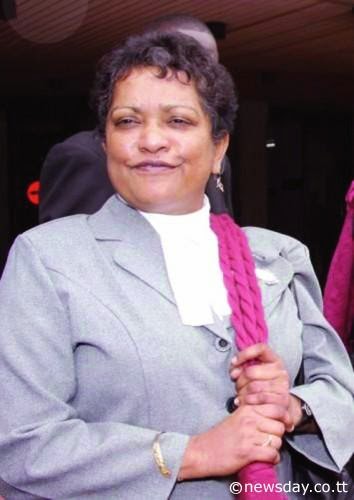The Dirty Business Of Cleansing
The Caribbean Is One Nation.
The Dirty Business Of Cleansing
The Dirty Business Of Cleansing
Sitting
with Dr Jose Serulle Ramia, Ambassador of the Dominican Republic to T&T
yesterday, I heard words that had already been uttered by his partner
ambassador to Washington DC, Anibal de Castro, in the New York Times of October
31—that the DR Government must follow the law i.e. Ruling 0168-13 of the
country’s Constitutional Tribunal; that DR is not racist towards Haitians; that
it has a legitimate interest in regulating immigration; and that the ruling was
a mandate to provide people affected with temporary residence permits until a
regularisation plan is in place.
The
ambassador in DC added that those affected are not stateless because the
Haitian constitution bestows citizenship on any person born of Haitian parents
anywhere in the world. In others words, de Castro is saying these people are
constitutionally Haitian citizens although they have lived and worked in the DR
for generations, speak Spanish and little or no French or Haitian kweyol, and
many have never set foot on Haitian soil.
De
Castro’s letter to the NY Times editor was published alongside one signed by
award-winning authors Edwidge Danticat, Junot Diaz, Mark Kurlansky Julia Alvarez.
The writers argued that one of the important lessons of the Holocaust was that
the first step to genocide is to strip a people of their right to citizenship.
They
describe the ruling, which is retroactive to 1929, as institutionalised racism
and a huge step backward: “The ruling will make it challenging for them to
study; to work in the formal sector of the economy; to get insurance; to pay
into their pension fund; to get married legally; to open bank accounts; and
even to leave the country that now rejects them if they cannot obtain or renew
their passport. It is an instantly created underclass set up for abuse.”
The
foursome raise the spectre of the October 1937 Dominican Massacre when dictator
Rafael Trujillo ordered the deaths of an estimated 20,000 Haitians over five
days.
Seventy-six
years later, that cleansing burns in the memory of Haitians. The BBC picks up
the story, recounting that it earned the name the Parsley Massacre because
Dominican soldiers carried a sprig of parsley and would ask people suspected of
being Haitian to pronounce the Spanish word for it: “perejil.”
Those
whose first language was Haitian kwejol found it difficult to say it correctly,
a mistake that cost them their lives.
Bodies
were dumped in the Massacre River, so named after an earlier colonial struggle
between the Spanish and French.
From
late September to mid-October that year, men, women and children were rounded
up, then beaten or hacked to death for just being Haitian.
Even
dark-skinned Dominicans were caught up in the purge that became known as “el
corte”, the cutting.
Even
the US at the time, which regarded Trujillo as a staunch ally, condemned the
killings in diplomatic cables describing it as “a systematic campaign of
extermination”.
There
is evidence that in many villages Dominicans risked their own lives to help
their Haitian neighbours escape. In other cases, local people pointed out
Haitian immigrants to the authorities.
The
ghost of DR past resurrected in that country this week when a crowd, comprised
of “patriotic” NGOs in defence of sovereignty, gathered to support the
court ruling. Among the chants and banners were “Death to the Traitors”, “Build
a Wall”, and “Let us Cleanse the Country”.
It
would have been a terror-inducing to Haitian-descended Dominicans to see the
crowd and hear the violent, racist rhetoric. The hypocritical leaders of these
“patriotic” NGOs did not speak of landowners and business people who encouraged
Haitians to DR as cheap labour to be exploited for maximum profit. But Nobel
laureate Mario Vargas Ilosa spoke it in Courrier International.
Neither
did the NGOs nor the two ambassadors speak about the fact that the ruling of
the Constitutional Tribunal violates a 2005 ruling of the Inter-American Court
of Human Rights which told the Dominican Republic that it could not use the
nationality of parents as pretext for taking citizenship from their children.
The Inter-American court’s rulings are binding.
Haitian-descended
Dominicans are not the only ones affected. Making its ruling retroactive to
1929, the Constitutional Tribunal instructions also include the descendants of
Jews, Chinese and Europeans. By far, however, the largest and perhaps most
vulnerable grouping is Haitian descended.
An
immigrant census released earlier this year estimated there were 245,000
Dominican-born, first-generation children of immigrants living in the country.
The number affected by the ruling is likely to be exponentially higher because
it applies to other generations as well.
If,
as Mario Vargas Ilosa said, the true face of the DR was visible in the
country’s immediate expression of humanity following the January 2010
earthquake in Haiti, it’s time for more of that to be demonstrated by
Dominicans who, incidentally, are themselves beneficiaries of first-world
countries’ generosity when they migrate illegally.
(From
The Trinidad Express Nov. 7, 2013)




Comments